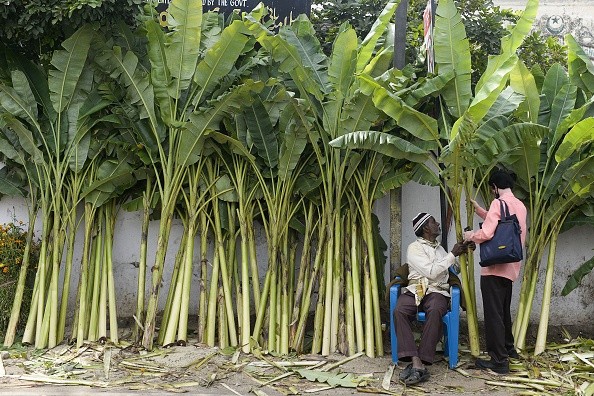During El Salvador's civil war, which began in the 1970s, a wounded Victor Hernandez sheltered behind the fronds of a banana tree from falling bombs.
The kid soldier, a member of the indigenous Maya Ch'orti tribe, hobbled toward Guatemala, toward freedom, using a limb of the tree as a crutch.
He informed his daughter, Jessica Hernandez, who tells the tale in Fresh Banana Leaves: Healing Indigenous Landscapes Through Indigenous Science, "I think that this banana tree saved my life."
It's ironic, he says, because banana trees aren't native to El Salvador.
Why western environmentalism won't save indigenous people

According to Sciencenews, Hernandez is an environmental scientist, who compares her father's experience to that of the banana tree.
The journey of the banana tree from Southeast Asia via colonial European ships required the adaptable plant to adapt to its new habitat in the Americas.
Similarly, her father adjusted to being relocated, finally settling in the United States, despite receiving less-than-welcome receptions along the way.
Banana trees have appeared frequently in the life of Indigenous scholars, scientists, and communal activists Hernandez, as per Audubon.
When her father was forced to be a child soldier in El Salvador's civil war, he thanked the trees for supplying him with food and shielding him from bombs.
Banana leaves play an essential role in her family's heritage meals, such as tamales. And, as the book's core theme, the plants are thematically relevant to Hernandez because they reveal nuances that Western ideals of conservation sometimes overlook.
Some conservation experts are increasingly pursuing a community-based approach to conservation, in which Indigenous people engage in project design rather than becoming study participants.
However, Hernandez contends that this does not go far enough: in such research, non-Indigenous persons frequently end up speaking for Indigenous communities.
Hernandez's important ideas is that nature as a kin
Fresh Banana Leaves just scratches the surface of Hernandez's Indigenous wisdom, which she has learned from personal experiences and information passed down through her family and community.
She claims that including it all would "need one book each year of existence."
However, she takes care to illustrate the complicated reasoning required to recognize that information. As a starting point, it is critical to recognize the comprehensive vision of Indigenous knowledge systems.
Agroecology, or the guardianship of self-sustaining agricultural ecosystems, contrasts with conventional Western techniques of dividing agricultural tracts and limiting development by fighting nature, such as pesticide usage.
When she speaks about ecological mourning, she is referring to the wish that many Indigenous peoples have to return to their ancestral territories.
Another way to look at it is via the ties the indigenous people have with nature, particularly with plants, animals, and nonliving kin. When the effects of climate change destroy them, there is a period of grief for all Indigenous peoples.
A large number of settlers have lost touch with nature. They regard nature as a commodity, failing to recognize that many people respect natural resources for reasons other than economic worth.
Among Hernandez's most important notions is that of nature as kin, which would exclude the utilitarian approach popular in Western environmentalism, which is based on conserving nature's value to people or a supposed purity of wildness.
Her tribe's name, Binnizá, reflects the alternative: it means "cloud people," implying that "our function on earth does not cease when we are gone, since we continue to offer water to our plant and animal cousins in the form of rain."
Humans and nature support one another, both during and the afterlife.
Related Article: Deadly Erection-Giving Spider Crawls Out of Banana In Bristol
© 2025 NatureWorldNews.com All rights reserved. Do not reproduce without permission.





